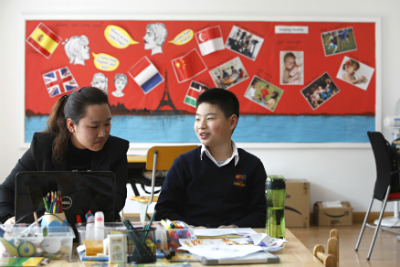Focus
PISA lessons

©Aly Song/Reuters
Asian students outperformed the rest of the world in results from the 2012 Programme for International Student Assessment (PISA) survey, which assessed the knowledge and skills of 15-years-old students in maths, reading and science in 65 countries.
Students in Shanghai, China were top in maths: the city’s 15-year-olds scored the equivalent of nearly three years of schooling above students in most OECD countries. Singapore’s students were the next highest performers. Other East Asian economies, including Chinese Taipei and Japan, saw improved results since the previous PISA round in 2009.
In Europe, Germany and Poland showed notable progress, as did Brazil and Mexico in Latin America.
The vast array of data collected through the study provides lessons to improve how education responds to the challenges of our time. In his summary of key PISA outcomes in the OECD Observer, Andreas Schleicher, who runs the study, points out some key features.
One of them is that students in the highest performing countries attribute success to hard work rather than inherited intelligence, which suggests that values instilled through education and social context can make a difference. Another interesting feature is that “high performers embrace diversity among students with differentiated instructional practices”, as Mr Schleicher points out. This reflects the importance PISA places on understanding how education can best help students overcome social disadvantage.
Another key lesson of PISA is in the vital role of quality teachers. The best performing countries put a special emphasis on teacher selection processes, training, incentives–through good career prospects, for instance–as well as on developing innovative approaches to teaching. Crucially, top educational systems are also those that deliver high quality across the entire school system, from the earliest years to the first steps in professional life.
Read more
- The main findings from PISA 2012, country-related content and video streams available here: http://www.oecd.org/pisa
- “With high levels of youth unemployment, rising inequality and a pressing need to boost growth in many countries, it’s more urgent than ever that young people learn the skills they need to succeed,” says OECD Secretary-General Angel Gurría in this PISA video: http://youtu.be/6yhiGj-252k
- Explore the performance of individual countries and the impact of factors like gender and social background with this data visualisation tool.
- Germany’s education reforms based on insights from PISA have paid off: “PISA: The consequences for Germany”
- “Asia’s students storm PISA 2012”, OECD Insights blog
Related Documents